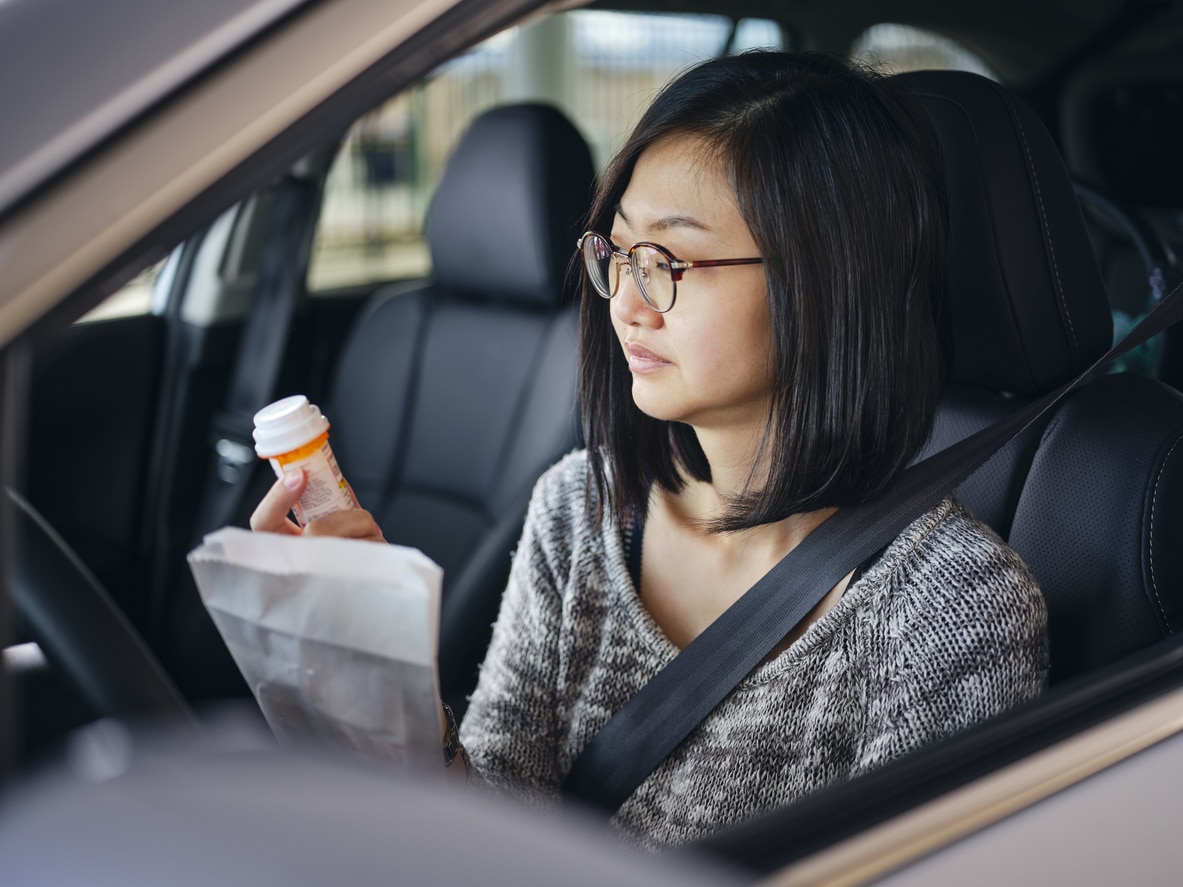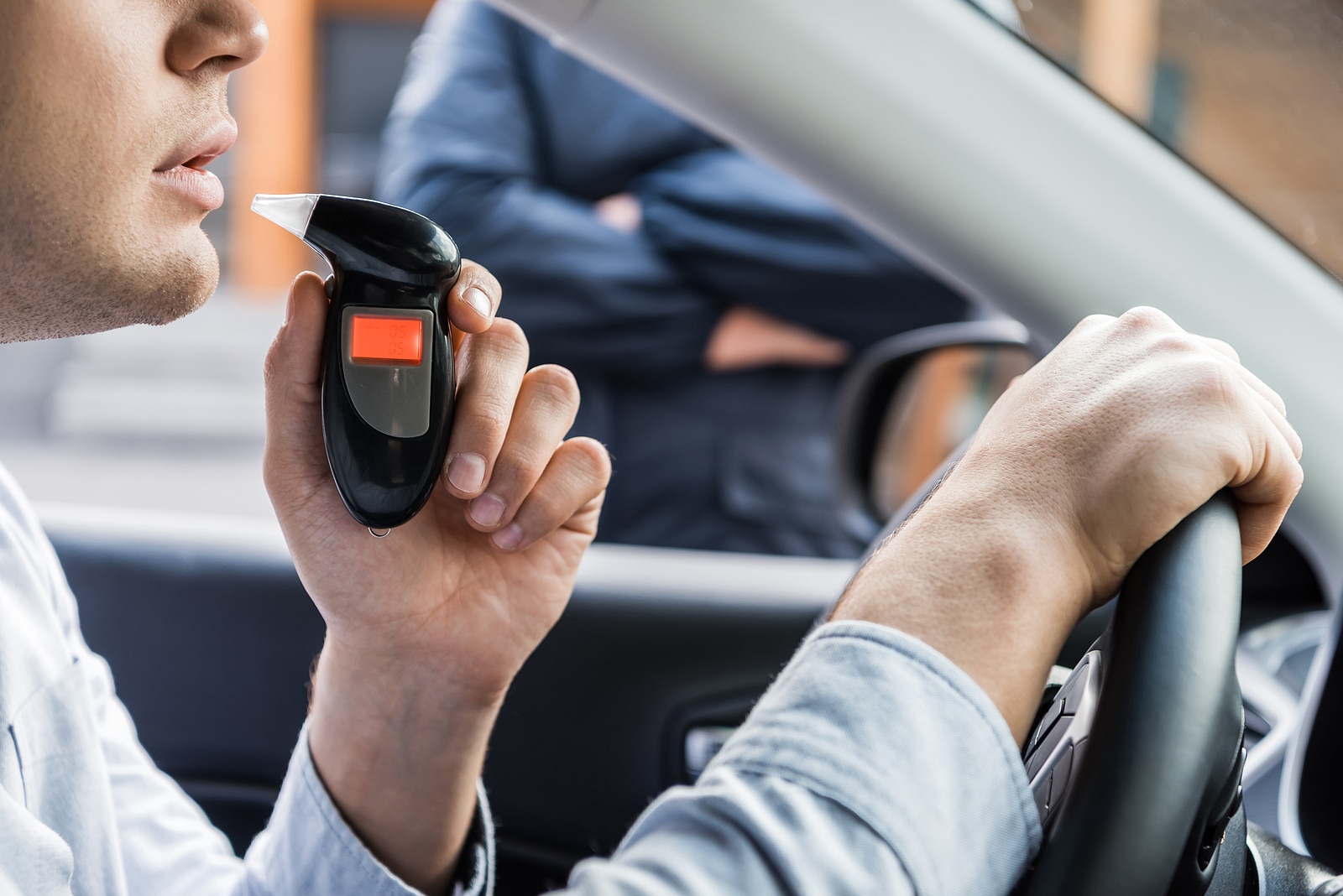Getting a DUI is not only serious, it’s stigmatizing. People often assume that DUI offenders are careless about their own lives or anyone else’s. But a DUI can result from nothing more than the ordinary use of a legal medication.
When you drive in California, it’s vital to understand the medications you have “on board” and how they can affect your actions—and any traffic stop you may encounter.
Driving and Drugs in California
Many common prescription drugs can cause drowsiness or delayed reactions, including:
- Analgesics (painkillers) with opioids, such as Percocet
- Anti-anxiety drugs such as Ativan, Klonopin, and Xanax
- Psychotropic drugs for depression and mood disorders, including Seroquel and Elavil
Non-prescription drugs like Benadryl and Dramamine can also dull your alertness and response time. You need to understand the effects of any drug you take because, under California law, there is no list of “acceptable” drugs for use while driving.
For the purposes of DUI, the law defines a drug as “any substance or combination of substances, other than alcohol, which could so affect the nervous system, brain, or muscles of a person as to impair, to an appreciable degree, his ability to drive a vehicle …” Cal. Veh. Code § 312. It is illegal to drive under the influence of any drug or any combination of alcohol and drugs. See § 23152(e), (f).
Penalties for a DUI Involving Drugs
The criminal penalties will depend on your situation and whether you have already had a DUI. If no injuries are involved in the DUI, misdemeanor penalties can include:
| First offense | Probation or a county jail sentence of up to six months
Alcohol/drug education program Fine of $390–$1,000 |
| First offense under age 21 | The above together with a requirement to visit drunk driving victims or trauma professionals
An additional requirement not to drink or take illegal drugs until age 21 |
| Second offense within 10 years | County jail sentence of 90 days to 1 year, or probation with jail sentence of at least 96 hours
Long-term DUI program participation Fine of $390–$1,000 |
| Third offense within 10 years | County jail sentence of 120 days to 1 year, or probation with jail sentence of at least 30 days
Long-term DUI program participation Fine of $390–$1,000 |
| Fourth or further offense within 10 years | County jail sentence of 180 days to 1 year, or probation with jail sentence of at least 30 days
Long-term DUI program participation Fine of $390–$1,000 Habitual traffic offender status for 3 years |
Penalties are increased for those who refused chemical tests or those who were stopped for a DUI while carrying a minor under 14 years in their car. An automatic driver’s license suspension follows a DUI charge, although you may be able to get a restricted driver’s license with limited privileges.
What Are the Next Steps?
Unfortunately, you can’t fight a California DUI charge for prescription drug use with common-sense arguments. It does not matter that you used the drug legally or that you believe you were just tired, rather than “impaired.” A DUI attorney needs to review the case and attack it on its weakest points.
Probable Cause
Unless the stop occurred at a DUI checkpoint, an officer needs “reasonable suspicion” to stop a vehicle for DUI. This can include traffic violations or erratic driving. A DUI defense attorney will examine the officer’s grounds for the stop to determine whether the suspicion was reasonable. If the stop took place at a checkpoint, the attorney will review whether the checkpoint complied with the law.
For a lawful arrest, an officer needs “probable cause,” usually gathered from personal observation, field sobriety tests (FSTs), and chemical testing. Since a breathalyzer test cannot detect drugs, it does not provide instant probable cause. An attorney will look carefully at the officer’s reasoning for possible bias or errors. If a stop or arrest was unlawful, the attorney can move to suppress the evidence.
Admissions to an Officer
Police officers have clever ways of asking questions that get the answers they want without respecting your rights. If you admitted to something incriminating while you were under interrogation, your attorney may be able to suppress that admission, depending on the circumstances.
Chemical Testing and Field Sobriety Tests
Breath testing is for alcohol, not drugs. Blood tests and urine tests can indicate the presence of medications. A blood test can take days or weeks to complete; urine tests are relatively quicker. However, both types of test can be wrong—either wrong in their results or administered unlawfully.
FSTs are also rife with the possibility of error. In fact, one study showed that police officers were wrong about FST test subjects almost 50% of the time. Aside from bias, an FST can give a false positive if the subject is sick, anxious, performing in bad weather, or otherwise working against unfair conditions. Our team understands how to interpret and attack the results of an FST.
Working to Clear Your Name
If you have been arrested for a prescription drug DUI in Los Angeles County, we want to talk to you. Our firm has years of DUI experience from prosecutorial, judicial, and expert perspectives. Call us today at 866-927-3295 to talk to us in LA, Riverside, San Bernadino, or Westlake Village.



